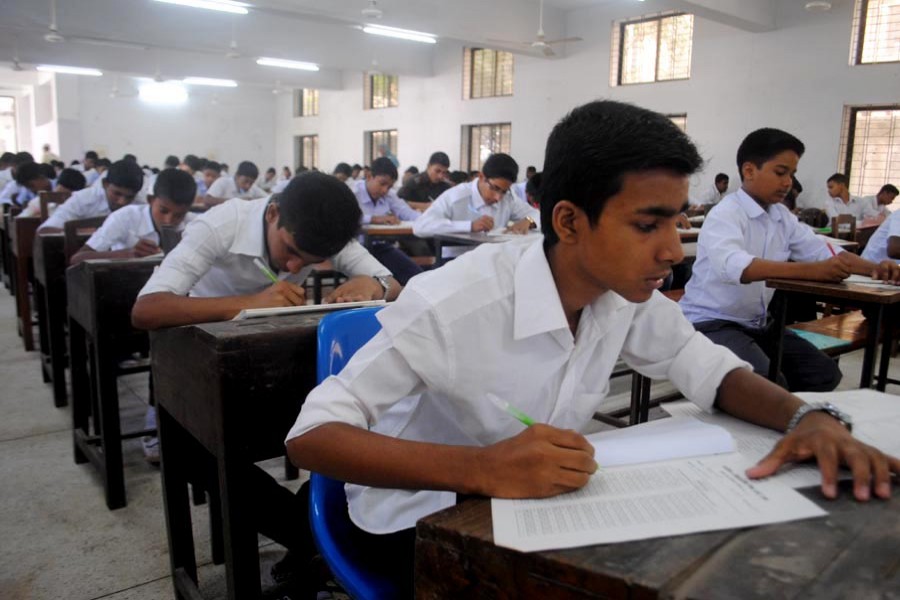The drop in the pass rate of this year's Secondary School Certificate (SSC) and equivalent examinations by 2.58 percentage point has drawn some criticism from different quarters. But they have mostly taken a wrong target for criticism. A decline in pass rate such as this does not quite cause the sky to fall on the nation's head but what happened during the examinations does. Widespread question paper leaks not only took a test of the authorities' capacity for holding such a public examination as also of the moral perimeter of teachers, guardians and students. In that test all the parties concerned failed and surrendered to the perverse network responsible for this crime against the nation. The education minister rules out any impact such question leaks may have had on the result because he reckons only 4,000 to 5,000 students benefited from the malpractice. How he has arrived at the number of beneficiaries is not known but even if the minimum number he has mentioned receives the undue advantage in examinations, the entire process becomes more a farce than a serious and sacred exercise.
It is a pity that moral issues are now relegated to the back burner. A public examination of SSC's order in this country cannot be taken so lightly because in the majority of students' case it acts as the foundation for their lives - not just in terms of career but also in terms of the human beings they would become. The scandal associated with the 2018 SSC exam will haunt the examinees and will have a lasting impact on shaping their mentality. Only the few who declined to have a look at the leaked question papers when those were available prior to examination of each paper will have the moral uprightness to face life straight. It is immaterial for those who cheated in the examinations and achieved the highest grade. If the new evaluation method introduced for marking answer scripts is responsible for bringing the pass rate down, what is the explanation for the increase in the number of highest grade, GPA-5 achievers?
Question leaks surely have had their impacts on grades, no doubt. If drop of a few percentage points in Mathematics and English subjects are blamed for the overall fall in the pass rate, a few solid marks obtained from MCQ (multiple choice questions) in different subjects and a few solution in arithmetic can do exactly the opposite - improve grades and overall pass rate. The difference between 81.21 per cent (previous year's average pass rate for eight boards) and this year's 79.40 per cent pass should least bother educationists, because more important issues thus disappear from sight.
What are those important issues then? First, it is the restoring of confidence in the examination system. Here, the Higher Secondary Certificate (HSC) examination has been quite an improvement. That system should be replicated for the next year's SSC examinations. The education ministry has announced doing away with the MCQ. Aren't students here being subjected to too many experiments and too frequently? What is needed is qualified teachers who are well paid and are motivated enough to teach well in classes but do not open up shops for sure success in exams. The need for commercial coaching has to be made irrelevant. An overall improvement in teaching methods and education should be the objective.


